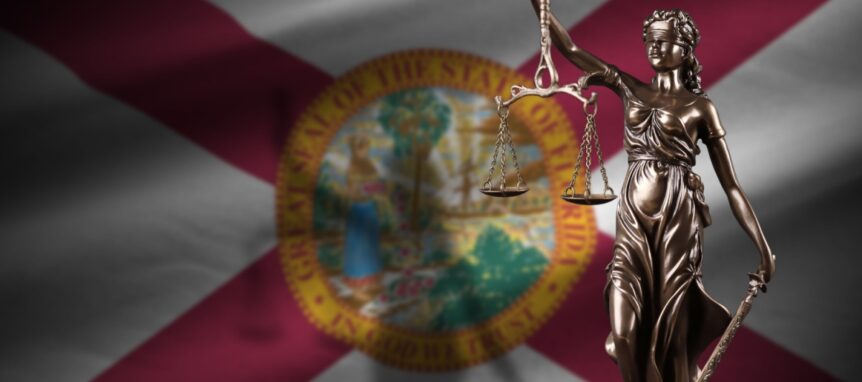As of July 1, Florida has passed 157 new laws. Many of these are not widely publicized, so it is important for Florida residents and visitors to know which ones they should be aware of so they can avoid fines and other consequences. Here’s a look at 13 important new laws that are now on the books.
- Fluoride Ban
Beginning July 1, Florida will prohibit adding fluoride to public drinking water. This will make it the second state, after Utah, to do so. Supporters argue residents should not be forced to ingest a substance they believe may pose health risks. Dental experts oppose the ban, warning it could lead to worse oral health outcomes, especially for low-income communities. - Dexter’s Law
Penalties for aggravated animal cruelty will be increased under “Dexter’s Law,” named after a dog found beheaded in a Pinellas County park. The law targets intentional torture resulting in an animal’s injury or death and mandates a public database of offenders by 2026. - School Phone Ban
A new rule bans phones for elementary and middle school students throughout the entire school day. High schoolers will still be limited to no phone use during class, though six school districts will test a full-day ban through a pilot program. - School Device Restrictions Expansion
Building on a 2023 law, Florida now extends the ban on phones from just class time to the entire school day for younger students, reflecting growing concerns about classroom distractions and social media use. - Middle School and High School Start Times
Here’s another school-related matter. This law repeals the 2023 statewide mandate that set minimum start times for middle and high schools. Under the old requirement, middle schools couldn’t start before 8 a.m. and high schools before 8:30 a.m. by July 1, 2026. The law shifts start-time decisions back to local school boards and charter schools, restoring local control. Districts and charter schools must submit a report to the Florida Department of Education by June 1, 2026, to be considered in compliance with the law
- No Development in State Parks
Florida will block commercial developments — such as hotels, golf courses, and pickleball courts — in state parks. The law follows public backlash against a previous proposal by Governor Ron DeSantis to allow such projects. - Anti-Squatter Measures
New laws give property owners more authority to remove squatters and unauthorized guests. One allows law enforcement to remove individuals previously ordered to leave, while another distinguishes between tenants and hotel guests—streamlining evictions from lodging facilities. - Boater Freedom Act
Law enforcement can no longer stop and search boats without probable cause. Supporters say the act protects civil liberties and boating communities; critics argue it could make it harder to prevent overfishing and impaired boating. The law also revises rules for Springs Protection Zones, prompting concerns from environmentalists. - Gulf of America
State law will now refer to the “Gulf of America” instead of the “Gulf of Mexico,” following an executive order by President Trump. Florida agencies and schools must update maps and materials to reflect the change starting July 1. - Condo Reform
A major condominium reform package takes effect to ease rising association fees after the 2021 Surfside collapse. It allows associations to invest reserves, pause reserve funding for two years post-inspection, and increase financial transparency and accountability. - Squatter Eviction Streamlining
Complementing last year’s legislation, new measures further simplify how property owners can remove squatters, especially from hotels and short-term rentals, by giving law enforcement clearer authority. - Vulnerable Adults
The law strengthens protections for elderly or disabled (vulnerable) adults against financial and other forms of exploitation, particularly when the perpetrator is hard to identify, such as scammers or fraudsters who remain unknown or untraceable. The law defines “unascertainable respondent” as a person whose identity cannot be discovered, such as scammers using fake emails, social media handles, or phone numbers. Under this law, substitute service is allowed.
Normally, court papers must be personally served. Now, a petition can be served via the same communication method the scammer used (email, social media, phone), once certain conditions are met.
- Hazardous Walking Conditions
This bill revises the criteria under Florida Statute 1006.23, which defines “hazardous walking conditions” for public school students. It expands the definition to include walkways alongside limited-access roads (like highways and freeway ramps). It requires that where students walk on roads with no sidewalks:
- There must be a minimum 4 ft wide walking area (excluding ditches, swales, etc.)
- On uncurbed roads posted at 50 mph or higher, the walkway must be at least 3 ft off the road edge.
Contact Us Today
With more than 100 new laws on the books as of July 1, Florida residents need to know what laws will affect them the most.
A Florida lawyer from Brill & Rinaldi, The Law Firm, can help you understand the new personal injury laws and how you can recover compensation if you suffer damages. To schedule a consultation, fill out the online form or call (954) 876-4344. We have offices in Weston, Coral Gables, and Daytona Beach.

